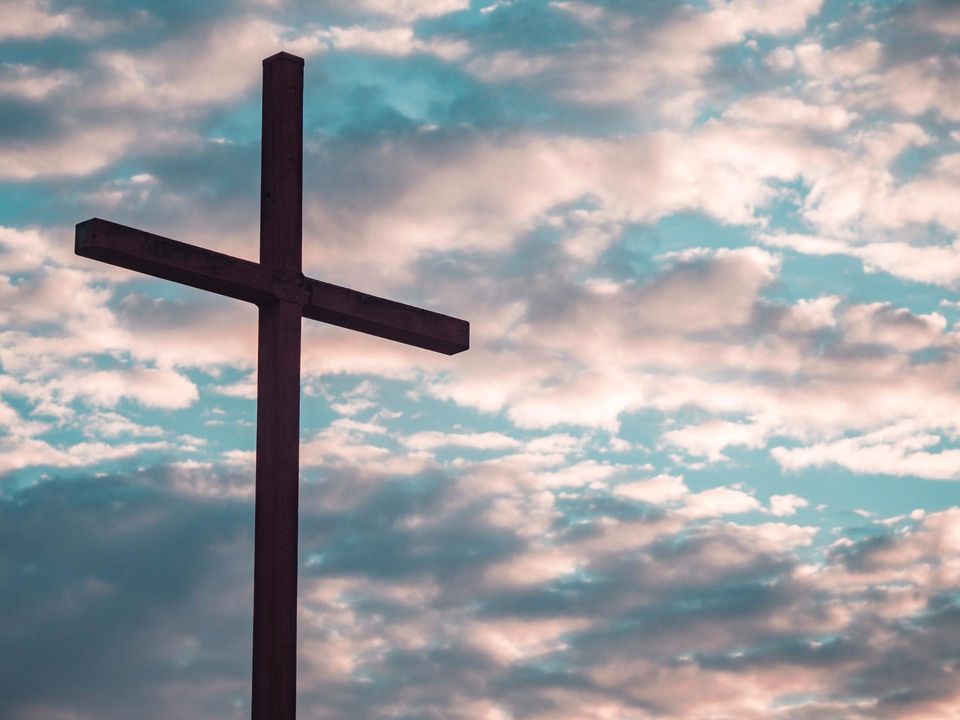"Doubting" Thomas
Alice Edge • April 22, 2020
What did Jesus' resurrection mean for Thomas?

John 20:19-29 – “Doubting” Thomas
Already Easter feels like a lifetime ago. I was able to watch some online services, stare at digital chocolate Easter bunnies, and spend time resting in a season that is normally pretty busy. And yet, in all the chaos, there was the Easter peace and celebration in the resurrection of Jesus.
But as I continue on in my life, it can become easy to once again resume the rhythm in my life, put Easter behind me, and move forward without a second thought.
However, this wouldn’t have been the case for the disciples. We talked a bit last week about the hope Jesus’ resurrection had for Peter in the midst of his betrayal, guilt, and shame, so this week we’re going to look at what Jesus’ resurrection meant for Thomas.
I think I was about 17 when I read this story for myself for the first time. I had heard sermons on it in church, and talked about it in Sunday School sometimes, but I had never stopped to really read it for myself (which I’m sure a lot of people can relate to!). And I’ll admit, I was pretty harsh on Thomas, as I think I was taught to be. He was always taught to me as “Doubting Thomas,” the disciple that lacked faith in the resurrected Jesus, even though the other disciples told him they had seen Jesus in the flesh. But the more I read and dissected this story for myself, I began to see that maybe that isn’t completely accurate. So I’m going to encourage you to do what I had to do: clear your mind of all the ideas you might have about “Doubting Thomas,” and come on my journey of discovery with me.
In John’s telling of the events after Jesus’ resurrection, the first time Jesus appears to his disciples is this particular occasion, while they are all (except Thomas) gathered together in a room. He spends some time with them after miraculously breaking into the room in true Jesus style, and shows them his hands and side where the holes were from his death. He then breathed the Holy Spirit into them, commissioned them to continue spreading the good news, and left. After thinking this man was dead, the disciples in the room had a pretty day that day. I imagine they were probably a bit overwhelmed, but full of relief and hope for the future.
So, Jesus leaves, and Thomas shows up. The other disciples tell him what happened, how they saw Jesus, how he broke into the locked room, how he spent time with them, how they were told to continue on in the ministry Jesus had begun. And Thomas finds the whole story unbelievable. He probably thought they were losing their marbles in the midst of their fear and grief. Perhaps he thought they were hallucinating or maybe they saw a ghost. And while there’s a part of me that thinks that conclusion is a little nuts, I wonder if maybe I would have thought the same thing. And so he tells them that if they’re right, well that’s nice but he’s not going to believe them until he sees Jesus for himself. And not just see Jesus, but to touch him, proving that he’s not a ghost or a hallucination.
And here is when I start to get a little stuck with the negative “Doubting Thomas” analogy. Thomas simply asks for the same experience the other disciples had with Jesus. He wants proof for himself, the same proof they got, the same moment with Jesus that they had.
If I’m honest, that doesn’t actually seem unreasonable to me. Instead, it almost sounds like my experiences growing up. I remember hearing all these stories of how people were experiencing God but didn’t have any experiences that I could recognise for myself. Even these days, I sometimes compare my experiences of God with those of others, and almost feel that their Jesus must be more valid than mine because they seem more “impressive” (whatever that means). And suddenly, I have found myself questioning God. Doubting the existence of God or the experiences of others because I haven’t had the same experiences.
Thomas had known and journeyed with Jesus for the same amount of times as the rest of the disciples, and this was his moment to ask for the same proof they had that Jesus was still alive. He almost demanded it.
But my favourite bit of the story is what happens next. The following week, Jesus honours Thomas’ doubt. He showed up the same way he had the first time. He talks to Thomas, shares with him the same greeting he had shared with the other disciples and allowed Thomas to do what he needed to do by touching his wounds. And Thomas sees his Saviour. He recognises him and believes. And Jesus said to him, “Stop doubting and believe.” Almost – “I’ve given you proof. Here I am. You don’t need to question again. Believe in me.”
For me, this passage is full of encouragement. Instead of judgement for the doubt Thomas felt, which is what I had always been taught, Jesus steps in and gives to Thomas what he felt he needed to believe. Certainty in the risen Jesus and hope for the future.
So, where does that leave me? Where does that leave us? I think it gives us permission to doubt. I think it gives us permission to ask for proof. For that moment that we can’t deny and will never deny again. Permission to look for certainty in our faith, particularly in challenging times, like those Thomas and the other disciples were facing.
Sermons For The Moment

This is an interesting Psalm – another psalm of ascent. We spoke about these Psalms of Ascent a few weeks ago. They were songs the Jewish people sang as they made their way to Jerusalem to go to the temple, through the forest, along the tracks, camping by the roads. And I believe songs like this kept them focussed and kept their spirits up. I can imagine days of walking together, tiring, boring, hot and dusty. And singing some of these Psalms keep them focussed on the faithfulness of God. Much better then eye spy for the kids. Journeys are not all their cracked up to be even if the destination is worth it. As you know, when I was growing up we always holidayed at Bawley Point past Ulladulla, and in those days it was about a 4 hour drive from Sydney. We always left later than we meant to…and the last 20 mins was on a dirt road. One year when I was probably about 4 years old it was dark by the time we got to the dirt road, and half way along the dirt road, was a dodgy wooden bridge over a river. I think part of the bridge had been damaged and we had to wait a bit in the pitch black darkness before we could proceed. Dad was out with a torch ensuring the bridge was safe to drive on and mum and us 4 kids were sitting in the darkness – no street lights, no moonlight. Of course, you might be able to guess what I said to mum in that car, with fearful crying…you’ve probably heard it from kids before. I said ‘I want to go home’. Mum said to me, ‘we can’t go home Robyn, we’re almost there’. In truth, after the bridge we had the last 10 minutes of a 4 hours journey left. We safely crossed the bridge and we were OK. But I remember it. I remember the feeling of being scarred in the darkness. I remember not liking this journey at all. Even though I always loved the destination. Well this psalm celebrates the end of the journey and the arrival at the destination. Psalm 126:1-3, “When the Lord brought back his exiles to Jerusalem, it was like a dream! We were filled with laughter, and we sang for joy. And the other nations said, “What amazing things the Lord has done for them.” Yes, the Lord has done amazing things for us! What joy!” Before we can understand the laughter and joy of the Israelites, we have to understand their journey. This Psalm looks back to when they arrived back in Jerusalem after 70 long years in Babylon. The captives had experienced great sorrow and mourning in exile. We read these heartbreaking words in Psalm 137: “Beside the rivers of Babylon, we sat and wept as we thought of Jerusalem. We put away our harps, hanging them on the branches of poplar trees. For our captors demanded a song from us. Our tormentors insisted on a joyful hymn: “Sing us one of those songs of Jerusalem!” But how can we sing the songs of the Lord while in a pagan land?” (Psalm 137:1-4). Their tormentors demanded they sing joyfully, but they were like – that’s impossible, it doesn’t come from our heart. So they just sat by the waters of Babylon and wept. But now by an amazing work of God they were suddenly back in Jerusalem. And so their joy came from their heart. The wait was over, the journey was complete. “We were filled with laughter, and we sang for joy.” The journey is the hard bit though isn’t it? I was reminded of this, this week. An Officer couple I was speaking to, said that their teenager said some very hurtful things to them. Stuff like, ‘you make my life worse’. As they spoke to me, I did very little but listen and pray with them. They do have other supports in their life as well, already seeing a psychologist. But what I was thinking in my head as they were speaking was ‘oh the teenage years, I’d forgotten them’. Though we have 2 wonderful young adults in P and K, they were times when it was more than tense. K wears her heart on her sleeve, and to this day apologises for some of the things she said to me. And P, you wouldn’t know what he was thinking, and then all of a sudden all his thoughts and feelings for the last 3 years would come out like molten lava everywhere. A few days later I checked in to see how the couple and their teenager were going. I mentioned in passing about teenage years and very briefly about our experiences. I didn’t want to make it all about me. But I said teenage years can be painful and those years can really hurt everyone in the family. Teenager included. They know that we have a good relationship with P and K and they said to me, you know, this is helpful. It gives us hope. I was like, yep, this too shall pass. Because when you’re in the midst of the journey of pain and sorrow, you sometimes wonder if there’s light at the end of the tunnel. If you’ll laugh again or experience joy again. You begin to wonder, “Is this all that God has for me? Will I ever be happy again?” And here’s the promise in Psalm 126:4-6, “Restore our fortunes, Lord, as streams renew the desert. Those who plant in tears will harvest with shouts of joy. They weep as they go to plant their seed, but they sing as they return with the harvest.” When you are going through a time of deep sorrow, Psalm 126 is strong medicine for your soul. It carries a powerful message of hope. It tells you that times of trouble and sorrow do not last. It tells you that God will turn your sorrow to joy and your tears to laughter. If you are going through a challenging time right now, I pray that this psalm will speak to your heart this morning. Let me tell you right up front, whatever you’re going through, it will get better. God will change your tears to joy. This week I found something I wrote about 10 years ago. I had written it on a piece of paper and there was a whole reflection about my life. At the time we had my mum living with us, she had dementia, and mostly I remember the good times and the fun times with her. I was also the Corps Officer at Glebe and Bob was the manager at William Booth House. After a page of writing I had written something like this “I’m often anxious, I’m usually stressed, I have eczema on my eyelids and ulcers in my mouth. I always feel pressed.” I went out to Bob in the lounge room and I’m like, ‘oh my goodness, eczema on my eyelids and ulcers in my mouth’, often anxious, usually stressed. The thing is, my life feels a long way from that now, and I’d forgotten what that part of my journey felt like. I’m sure when I was there I couldn’t look ahead and see a time of joy…but the truth is that “Those who plant in tears will harvest with shouts of joy. They weep as they go to plant their seed, but they sing as they return with the harvest.” This too shall pass. ‘Yes, the Lord has done amazing things for us!’ says verse 3. God is faithful – he does the healing, the restoring, he brings the streams in the desert that renews and brings fruitfulness. I don’t need to tell you – it takes time. Today, I’m praying for a work of healing in your life, a gradual restoration of joy, of laughter. Like me as a kid, sometimes we don’t like parts of this journey at all. Even though we know our destination is good. And ultimately, we have a destination like no other and that’s the promise of God. A home in heaven made possible through Jesus. May God bless you this week as you look to Him, listen to Him, find your hope in Him and find courage and healing in your journey.







